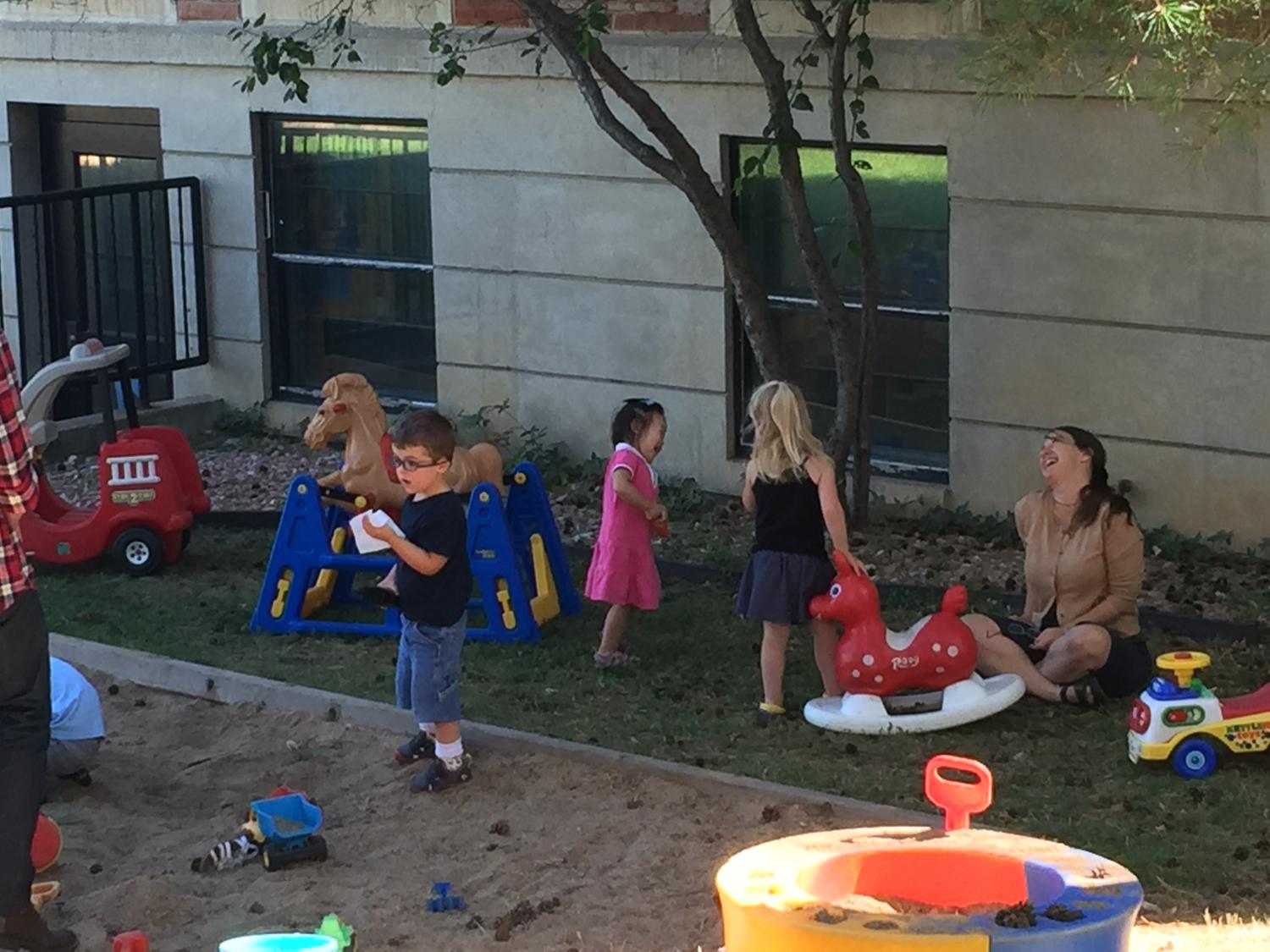The Advantages of Inclusive Preschool for Typical Children
The Advantages of Inclusive Preschool for Typical Children
Communication is part of our everyday life, and is vital for all children and families to be healthy, happy and thriving. Speech, language and social interaction skills begin to develop very early and continue throughout the child’s life. An inclusive toddler/preschool program integrates special education and related services into all aspects of the daily program. The school is accountable for the improved outcomes for all students, with the focus being on the whole child.
In our diverse society dependent upon social connectedness, it is important to explore the advantages typically developing children gain by participating in an inclusive preschool community along with their peers with special needs. Research over the last 30 years confirms inclusion benefits both children with and without disabilities. A common myth about inclusion is that attention provided to children with needs will take away from the typical peer’s experience, when in fact research indicates that typically developing children make similar developmental gains in regular and inclusive preschools (Odom, DeKlyen, & Jenkins, 1984, Strain & Bovey, 2011). Active engagement in classroom activities is a strong indication of learning and typically developing children actively engage in inclusive settings (Brown et al., 1999).
A primary purpose of the preschool experience is to develop a strong social-emotional foundation for future school engagement and quality of life. Within a quality inclusive preschool classroom, children relate and interact with peers in play and daily routines, engaging in experiences that promote the development of attention, self-control and the understanding that others have different experiences and perspectives. Studies indicate inclusive settings provide typically developing children with multiple opportunities to learn many new skills, values, and attitudes related to human differences (Alper & Ryndak, 1992; Farrell, 2000; Karagiannis, Stainback, & Stainback, 1996), including learning how to be friends with people who are different from themselves (Downing et al., 1996; Janzen, Wilgosh, & McDonald, 1995; Rafferty et al., 2001) and to assist classmates who may be experiencing difficulty (Burnstein et al., 2004; Idol, 2006). Some children independently learn to adjust their communication to engage their classmates who communicate differently (Guralnick & Paul-Brown, 1977; Staub et al.1994). When asked to describe friendships with children with needs, typically developing peers did not identify them as different from other friendships, and talked about the fun they and their friends with disabilities had together (Staub et al. 1994.) These attitudes and behaviors contribute to an overall positive classroom community.
In addition to developing strong interpersonal skills essential to daily effective communication interactions, intrapersonal skills are equally important, and developed in these inclusive preschool programs. Increases in intrapersonal skills including maturity, self-confidence, and self-esteem have been found as well (Kishi & Meyer, 1994; Peltier, 1997). The experiences and messages intentionally provided within an inclusive preschool setting are: (1) all children have value, (2) everyone has strengths and challenges, and finally (3) all children can both teach and learn. These messages may increase a child’s own acceptance of his/her own abilities and difficulties. Staub and colleagues (1994) identified several individualized benefits for the typical peers who established friendships with children with needs, including the benefit of companionship, as well as increased social status because they were considered kind and caring by others. Typical peers may also be able to share knowledge and model behaviors, and increase their level of ability through sharing and demonstration (Katz & Chard, 2000). In turn, children are also likely to show increases in self-esteem, confidence, autonomy and leadership skills (Fuchs, Fuchs, & Burish, 2000; Scruggs & Mastropieri, 1998). In a longitudinal study of students with exposure to peers with developmental disabilities, Kishi and Meyer (1994) found a strong effect for self-security and self-assertion. In boys, a higher level of self-acceptance was found. The authors concluded that self-concept in typical peers was supported by interactions with peers with needs that allowed boys to demonstrate nurturing and opportunities for girls to be noticed and valued (p. 286).
Beyond developing solid inter- and intra-personal skills, the typically developing children participating in inclusion at an early age have been found to view inclusion positively (Idol, 2006). In comparison, older children may be less likely to be receptive of children with disabilities included in academic settings at later points in their educational experience (Siperstein, Parker, Bardon, & Widaman, 2007). Beyond the established effect of improved attitudes of typical preschool children towards peers with disabilities in inclusive settings, research has also found an overall effect of more sophisticated and improved interpersonal skills in social interactions with a diverse population (Kishi & Meyer, 1994; Peltier, 1997). To promote belonging, engagement, confidence, intrapersonal as well as interpersonal skills in our diverse society, you can provide your child with the advantages of participating in an inclusive preschool program.
Written by: Amy Thrasher, MA, CCC-SLP, Clinical Assistant Professor, Child Learning Center and Judith Brooke, MA, CCC-SLP, Clinical Assistant Professor, Child Diagnostic and Intervention Services


